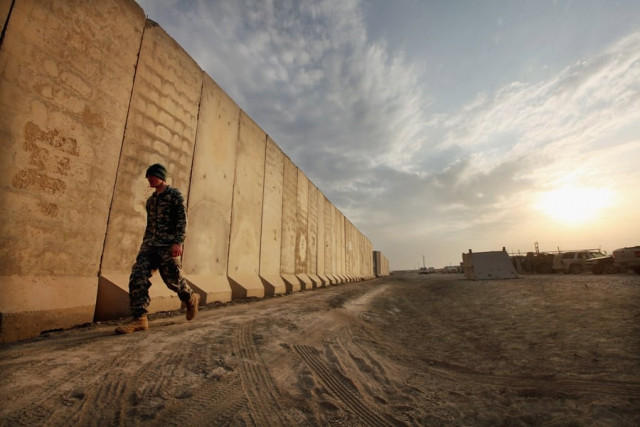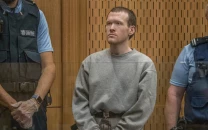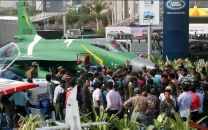Iraq's commitment to US mission questioned in Congress
Government experts told Congress that Iraq makes life difficult for the embassy in ways large and small.

Government experts told Congress that Iraq makes life difficult for the embassy in ways large and small, signaling ambivalence toward relations with Washington at a time when critics fear that the country is moving closer to Iran.
"The State Department and (Department of Defense) plan for a very large civilian-led presence in Iraq. But Iraqi commitment to that presence remains unclear," Michael Courts of the US Government Accountability Office told a House hearing.
There were also doubts about Iraq's desire to keep up “thousands" of costly reconstruction projects funded by US taxpayers, an ambitious multi-billion dollar program designed to leave an indelible "Made in America" stamp on post- invasion Iraq.
President Barack Obama withdrew the last US troops in December, ending America's occupation of Iraq after almost nine years of war. Critics of that move say it has diminished US influence in Baghdad despite massive investment in the country.
The Shi'ite-dominated government of Prime Minister Nuri al-Maliki insists that it wants good relations with the United States, and has signed a $6 billion purchase of American-built F16 warplanes. But it also has close ties with US foe Iran.
Baghdad has queried the size, location and security needs of the 14 US posts in the country and has only signed legally-binding land use agreements for five of the sites, Courts said.
With a staff of 16,000, it is the largest US diplomatic mission in the world, but most of the bodies are there to guard and feed roughly 2,000 direct US government hires in Iraq.
Deep Embassy Cuts
Notwithstanding a still deadly security situation, with bombs killing at least 20 people in attacks across Iraq on Thursday, more stable conditions in Baghdad are expected to see that number shrink substantially by October 2013.
"We will bring the numbers down ... from about 16,000 to about 11,500. That is about a 25 percent reduction in direct hires and about a 30 percent reduction in contractors," Patrick Kennedy, US Undersecretary of State for Management, told Reuters. Kennedy also testified at the hearing.
Although the State Department downplayed the logistical problems of maintaining the embassy, a sprawling compound on the banks of the Tigris River in the heart of Baghdad, lawmakers were left in no doubt that the challenges remained significant.
A separate study by the State Department's inspector general found Iraqi security forces "routinely" detain US security contractors at checkpoints, obstructing convoys bringing the embassy essential supplies from Kuwait, while Iraqi restriction of its airspace is "jeopardizing potential evacuation routes."
Harold Geisel, the State Department's deputy inspector general, told the House oversight committee his office "remains concerned about the safety of US government personal and contractors in Iraq."
Testimony by Stuart Bowen, the special inspector general for Iraq reconstruction, found "a vulnerability that the thousands of projects completed by the United States and transferred to the government of Iraq will not be sustained and thus will fail to meet their intended purposes."
Part of the problem stemmed from shortcomings in databases designed to keep track of the projects, from which the special inspector general found some $20 billion worth of projects were missing, making it harder for Iraqis to know what was available.
Lawmakers want to cull as many lessons as possible from the Iraq experience ahead of the 2014 withdrawal of most US troops from Afghanistan. They were told there was a lot to learn.
"The lessons amount to a call for action: the Congress should reform the US approach to stabilization and reconstruction operations," Bowen said.



















COMMENTS
Comments are moderated and generally will be posted if they are on-topic and not abusive.
For more information, please see our Comments FAQ